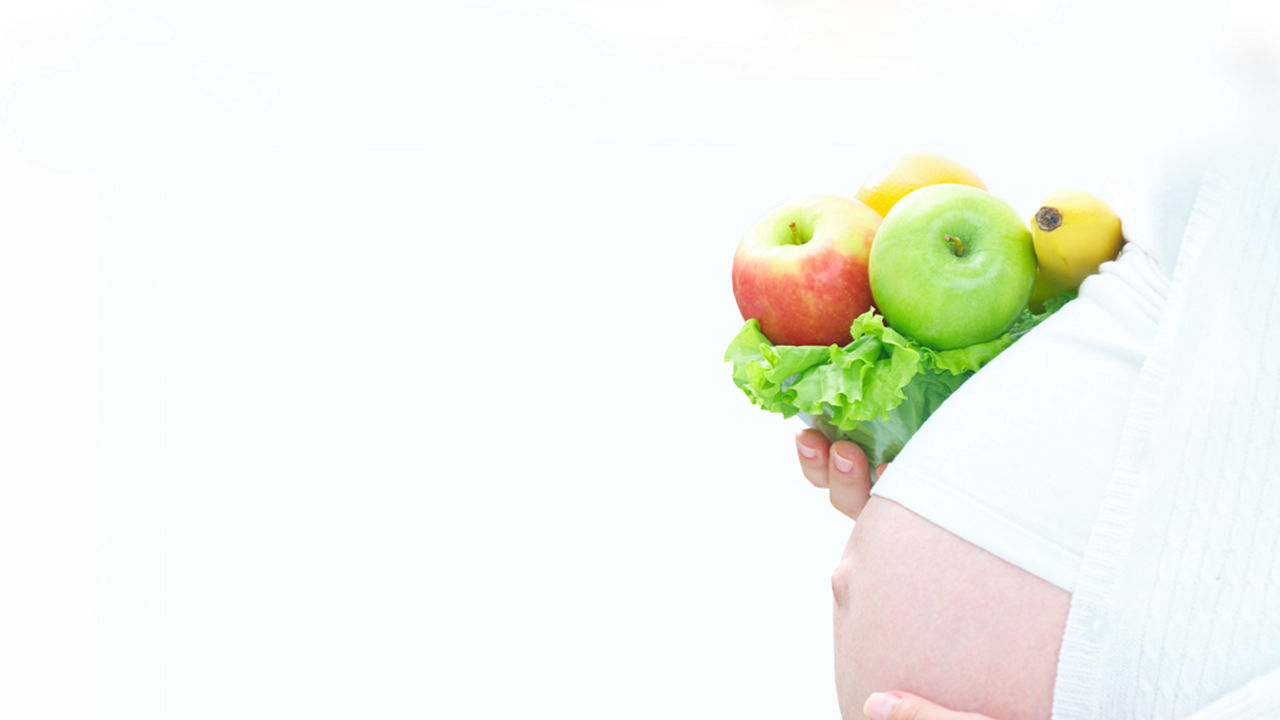Breastmilk is the best for babies. The World Health Organisation recommends exclusive breastfeeding for the first six months of life. Unnecessary introduction of bottle feeding or other food and drinks will have a negative impact on breastfeeding. After six months of age, infants should receive age-appropriate foods while breastfeeding continues for up to two years of age or beyond. Consult your doctor before deciding to use infant formula or if you have difficulty breastfeeding.
- Week 1
- Week 2
- Week 3
- Week 4
- Week 5
- Week 6
- Week 7
- Week 8
- Week 9
- Week 10
- Week 11
- Week 12
- Week 13
- Week 14
- Week 15
- Week 16
- Week 17
- Week 18
- Week 19
- Week 20
- Week 21
- Week 22
- Week 23
- Week 24
- Week 25
- Week 26
- Week 27
- Week 28
- Week 29
- Week 30
- Week 31
- Week 32
- Week 33
- Week 34
- Week 35
- Week 36
- Week 37
- Week 38
- Week 39
- Week 40
You should not leave out any supply of essential nutrients during your pregnancy. This is particularly true if you are a vegetarian. You will need to pay special attention to ensure that you have consumed a sufficient supply of iron.
With a varied diet, pregnant women who are vegetarians can also satisfy their nutritional needs without consuming meat. For example, there is an increased need for protein (by about 20 percent) in the 2nd trimester. This can be met through consuming a wide range of plant foods: pulses (lentils, beans, peas), whole grain cereals, nuts, oilseeds, potatoes, cheese and dairy products.
You should pay special attention to the intake of iron, folic acid and vitamin B12 as a vegetarian. Vitamin B12 can be found in milk, cheese and eggs.
Vegan diets during pregnancy
Animal products like dairy products or eggs are not consumed in a vegan diet. Therefore, the supply of Vitamin B12 can only be managed with vitamin supplements and fortified food. Calcium, vitamin D, iron, iodine and zinc supplement must also be taken when necessary. Experts have concluded that it is difficult to implement a healthy and balanced plant- based diet during pregnancy.
What should vegetarians eat to get an ideal nutrition during pregnancy?
Vegetarians who are pregnant should note their intake of omega-3 fatty acids as they are essential for brain development. You should have a balanced diet that consists of fruits and vegetables, dairy and grain products (varied seeds, legumes and beans).
Key nutrients: Iron
Plants do contain as much iron as found in meat, but iron from animal products can be absorbed more easily. The human organism can only absorb an average of 5 percent iron from plants but 20 percent of iron from consuming meat. This is because iron from plants must be converted before entering into the bloodstream. The iron requirement for expectant mothers is much higher during their 2nd and 3rd trimester of pregnancy. 30 milligrams of iron are required per day; for the formation of red blood cells and to build the placenta which supply oxygen and nutrient to the baby. Therefore, it is important to include iron-rich foods such as spinach, wholegrains, oatmeal, sauerkraut, beetroot or sesame on a regular basis.
Is your body absorbing enough iron?
The consumption of Vitamin C helps to increase your non-heme iron absorption. Consume a glass of orange or grapefruit juice with your meals. Do note that black tea and coffee has an inhibitory effect, whereby they bind to iron for excretion in the intestines. So refrain from these drinks during and after the consumption of your meal.
Not necessary: Preventive iron supplements
You should allow your gynaecologist to conduct a regular check on your nutritional status with regards to your pregnancy. This can be done through a simple blood test. Do not consume on an iron supplement on an empty stomach and include more fibre to your diet if you are prescribed with iron supplements from the doctor to prevent any unpleasant side effects like constipation. The administration of iron supplements without a doctor’s advice is not recommended, moreover an excessive intake of iron can sometimes lead to more harm than good.
Iron-rich foods
- Green vegetables and herbs
- Whole grains, oatmeal and millet
- Cabbage, sauerkraut and beetroot
- Dried apricots and figs
- Sesame
Join our AptaAdvantage Club today to enjoy:
- Educational content to support you on your motherhood journey
- Various complimentary classes and exclusive discounts with our key enrichment partners
Kickstart your AptaAdvantage experience by signing up HERE.
Related articles

Connect with our team of experts
We provide advice and support for you on your parenthood journey




